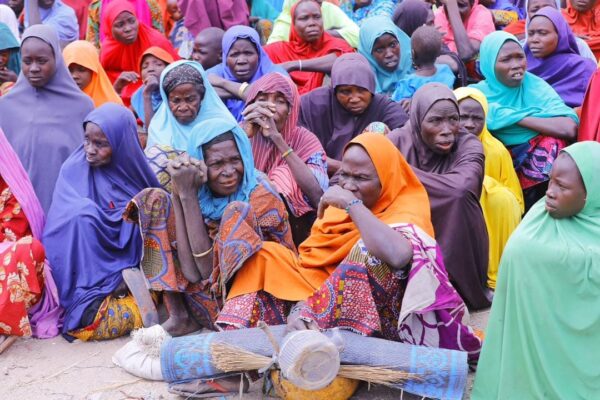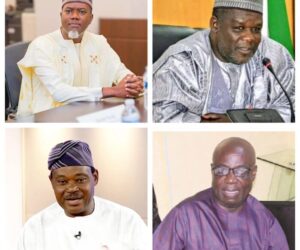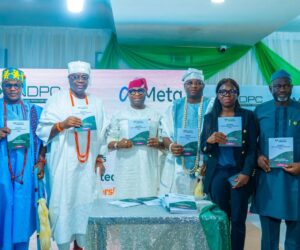The National Human Rights Commission (NHRC) on Wednesday organised a consultative forum to address systemic challenges of Internally Displaced Persons (IDPs) and Forcibly Displaced Persons (FDPs) across 11 states.
The challenges faced by the displaced persons were identified by the Human Rights Monitors (HRM) and Community Protection Action Group (CPAG) coordinated by the NHRC and the United Nations High Commissioner for Refugees (UNHCR).
According to the Executive Secretary of the NHRC, Tony Ojukwu, the forum was necessary for “deeper inter-agency coordination and collaboration at state and local government levels.”
The event was organised by the NHRC in partnership with the UNHCR.

The monitors and action groups identified 865 cases of lack of access to education and 1,283 cases of food and shelter challenges among the IDPs and FDPs.
Other challenges include insecurity, inhumane conditions such as gender-based violence, and unhygienic conditions.
Mr Ojukwu, a Senior Advocate of Nigeria, noted that following internal reviews, the data compelled the commission to act beyond enacting frameworks to ensure accountability and transparency.

“We must ensure that the cases referred to the Ministries Department and Agencies (MDAs) with a protection mandate or other Law enforcement Agencies (LEAs) are pursued transparently, sending a clear message that violations against FDPs will not go unpunished,” he said.
The representative of the Minister of Humanitarian Affairs and Poverty Reduction, Ussiji Nledana, stressed that protecting the rights of IDPs is a constitutional and moral obligation transcending humanitarian obligation.
The NHRC and UNHCR commenced the project to monitor and respond to realities of IDPs, refugees, asylum seekers and returnees in 11 states.

Most of which are in the Nigeria’s northern region which has been in the grip of multi-dimensional conflicts and violent criminalities, including terrorism and banditry, for more than a decade.
Only two of the 11 states are in the southern part of the country.
The states are Adamawa, Akwa Ibom (South-south), Benue, Borno, Cross River (South-south), Taraba, Kano, Katsina, Sokoto, Yobe and Zamfara.
According to the statistics presented at the event, Benue State has the highest record of displacements: 39,852.
Land for IDPs
Speaking during the forum, Benue State Governor, Hyacinth Alia, disclosed efforts of the government to acquire land for IDP camps with the ancestral homes of the displaced persons in mind.
“Just for the record, where we are in the state today is to see how we can get our IDPs relocated closest to their ancestral homes. And the way to do this is, we have already started acquiring portions of land in their primary local government headquarters,” he said.
“The government (Benue) is giving them (IDPs) 20 per cent of land in their home local government headquarters. So at the end of the day, they now have a choice, and that is to walk back finally and fully into their ancestral homes.”
Similarly, the representative of the Attorney General of Akwa Ibom State. Utomobong Inyang, noted that the state government has built 205 compassionate homes.
Ms Inyang described the homes as “a shelter initiative targeted at vulnerable individuals and families who lack adequate housing, including those displaced by emergencies.”
She noted that the government’s targets of 500 homes for the most vulnerable persons and families will be delivered within the next 18 months.
READ ALSO: Inside Benue IDP camp, where thousands live with stench
She also said that the Akwa Ibom State government is running an empowerment programme and a food security programme, which distributes free staple food items like rice, beans, and gari, to vulnerable citizens through a food voucher system.
Some representatives from the 11 states were present, including the Executive Secretary of the Kano State Emergency Management Agency, Isyaku Kubarachi. Also present were the representatives of the attorneys general from Taraba, Zamfara and Cross-River States, law enforcement officers, as well as civil society organisations.











